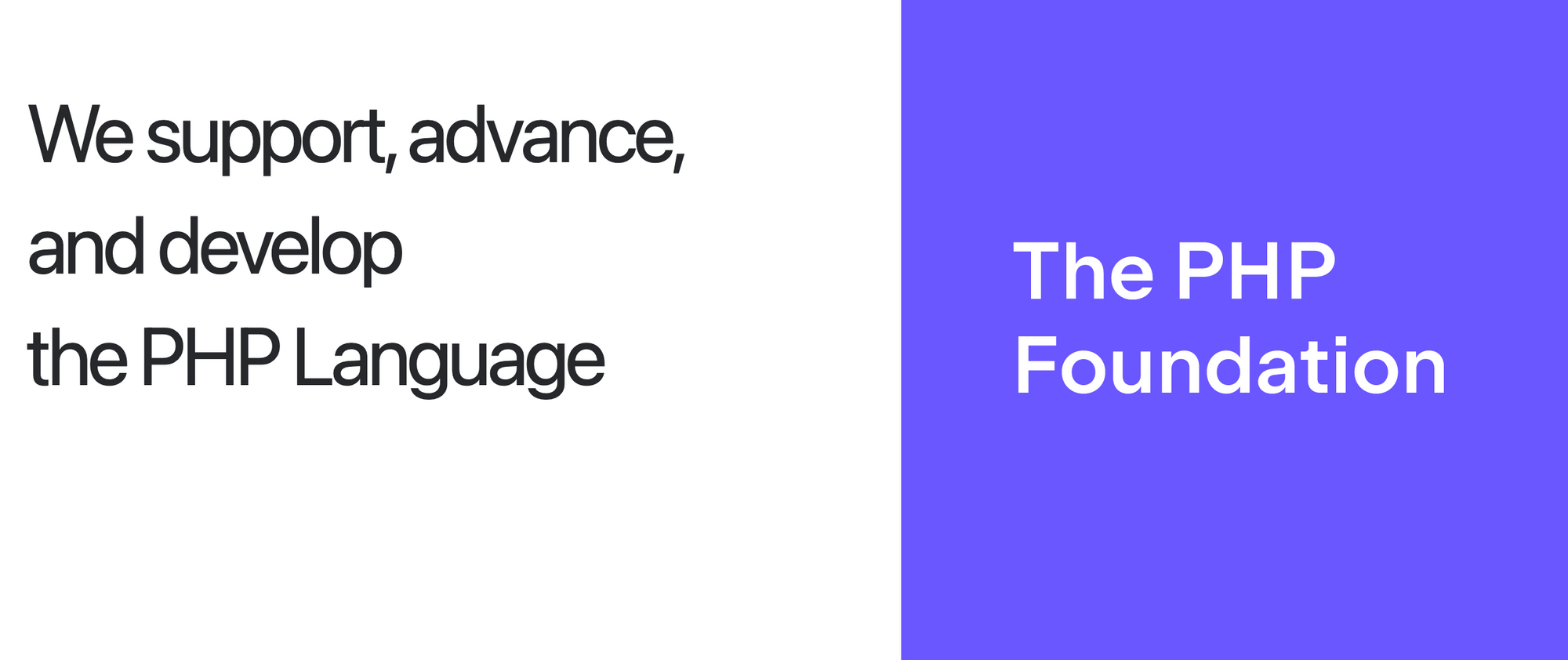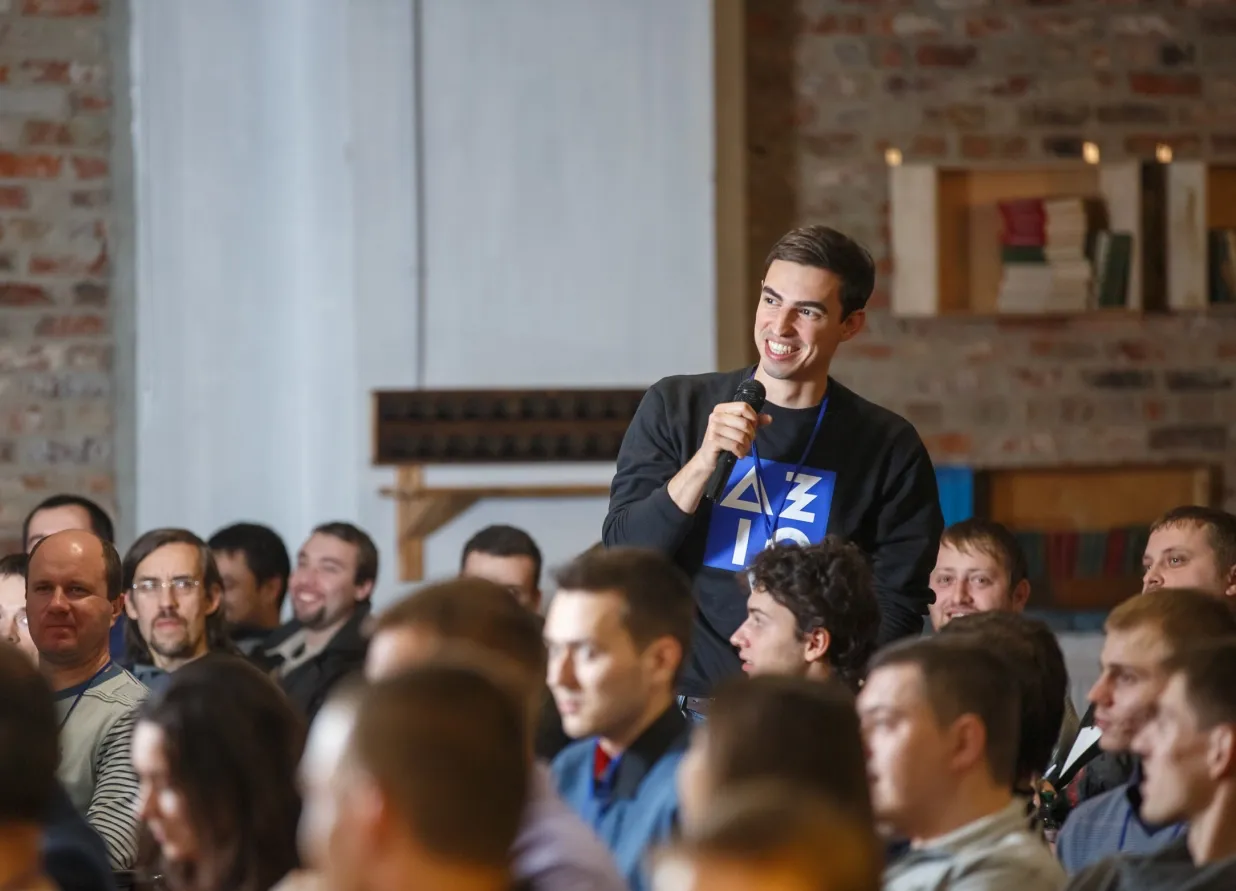PHP Foundation: Alive and Kicking

PHP Foundation co-founder Roman Pronskiy on the state of the language, and why its future is bright.
Born and raised in Kharkiv, Ukraine, Roman Pronsky has always worked in the tech industry. He started by studying math, and later programming organically fit in. After 10 years working as a software engineer and writing about PHP, he joined JetBrains to work on the PhpStorm IDE.

In November 2021, Roman helped the PHP community launch the PHP Foundation, to support, promote, and advance the PHP language.
What is PHP?
PHP is a popular general-purpose scripting language that is mostly used for web development. It’s 27 years old, having appeared in the same year as JavaScript and Ruby. PHP is an easy and versatile scripting language. But why choose it over alternatives?
"What I like about PHP is that it allows you to deliver results fast. PHP’s reputation comes from the old days when it had some quirks, but now it’s a mature language with a lot of great and well-known projects built on it, like Wikipedia, WordPress, Vimeo, and Etsy, among others."
PHP lets you be simple and light.
— John Gruber (@gruber) August 7, 2022
While statistics saying that 80% of the Internet is built on PHP might be overstated, its share is still huge. The language is going strong, despite its detractors.
PHP shines when implementing quickly with existing tools, like WordPress, Magento, and Drupal, instead of building from scratch and repeating others’ mistakes. PHP also has very mature frameworks, like Laravel and Symfony, which allow the building of more complex projects from the ground up.
Facing Challenges
In recent years, PHP has struggled from lack of full-time developers working on the PHP language itself, as opposed to tools built on it. PHP suffers from the tragedy of the commons, with many people using it for free and very few contributing back.
What does Roman have to say to those who think PHP is too old, or already dead?
“People have been joking about its death since PHP appeared. There’s a meme of a gravestone saying ‘“I didn’t think I would die before PHP”. Well, PHP is still here, and it keeps getting better. Many companies and developers all over the world are committed to PHP because it just works.”
I just came back from the future, this is what I read on a tombstone#PHP #PhpNotDead pic.twitter.com/gAzpqwh8mH
— Frédéric Bouchery (@FredBouchery) June 20, 2022
Enter the PHP Foundation
Following Joe Watkins’ influential blog post about the state of PHP, long-time community members Roman Pronskiy, Nikita Popov, Sebastian Bergmann, Stefan Priebsch, joined Joe Watkins and envisioned the PHP Foundation, to help fund development and enable companies to contribute back.
They drew inspiration and support from another Open Source Collective project, Open Web Docs.
“We learned from Open Web Docs’ organization, materials, and updates, and had a few calls to share experiences.”
Thanks to many PHP contributors and community members, along with support from major PHP companies, the community soon grew.
“Our goal for 2022 was to hire software developers to work on PHP core, do maintenance, and implement new features. We were lucky to get six committed part-time developers on board right away. Our next goals are to establish scalable processes for handling requests, and to improve communications. To achieve this, we need more people and companies involved.”
In general, they stay focused with a small team, a conscious choice of the PHP Foundation.
“We decided to not make our communication public right away, instead starting small by inviting, one by one, people who were already helping us. Since all admins have full-time jobs and do this work as volunteers, we want to be practical and focus on things that matter. We have bi-weekly calls with an agenda I publish in our closed GitHub repository. At some point, we plan to make this repository open, and possibly do live streams of the meetings. Maybe next year”.
The PHP Foundation supports its members to participate in events, like conferences, to give public talks. PHP Forum in Paris is coming up in October, where Sebastian Bergmann and Roman Pronskiy will explain where The PHP Foundation is right now and what we’re planning. At the same conference, developer George P. Banyard will go deeper into the technical side of the project. The next stop will be SymfonyCon in November, also in France.
Why Open Collective?
PHP Foundation joined Open Source Collective at its inception, allowing the team to focus on its goals rather than bureaucracy and admin.
“We considered several options of how to organize, including incorporating our own non-profit or joining an existing bigger foundation. My friend, Alexander Makarov, who had been collaborating with Open Collective for years, told me he was very happy with the experience. Open Collective felt like a perfect match. We were able to spin everything up within a month”.
Visit the PHP Foundation website and support the project on Open Collective.

